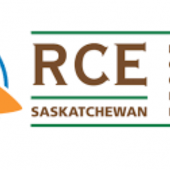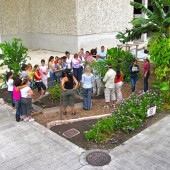
Abstract: Three decades ago Julius Nyerere (1990) wrote Challenge to the South. In response to the legacy of colonialism, Nyerere challenged the nations of the Global South to advance their development and to free their people. These concerns are as relevant today as they were in the 1990s. Established for the United Nations Decade of Education Sustainable Development in 2005, there are now over 175 Regional Centres of Expertise (RCEs) on Education for sustainable Development (ESD). This paper offers a case study of RCEs worldwide with a particular focus on challenges, and responses, including a focus on the select Sustainable Development Goals (SDGs) of poverty and health. Further, an account is given of RCEs which have attended to the recognition of Indigenous and traditional ways of knowing.
Continue Reading
Although higher education institutions are being encouraged to reorient their curricula to address sustainability, not everyone accepts the tenets of the United Nations’ mainstream approach to education for sustainable development (ESD), especially David Selby. This paper recounts intellectual gold nuggets garnered from critically reading his scholarship about education for sustainable contraction to counter climate change and global heating (instead of global warming). His ideas are deemed both enticing and disconcerting but apropos for these ‘interesting times.’ They provide a way for people to walk a different path than mainstream ESD one that respects transience, contraction, moderation and sustainability. This can best be achieved by deep education leading to deep, quantum learning so people can engage with the fears and truths staring them in the face. The thoughts shared in this paper should resonate with educators, politicians, industry leaders, civil society and the media.
Continue ReadingIn order to inform humans of the knowledge of the environment and the relationship between humans and nature, it is necessary to introduce sustainability related knowledge to students and educators via education, as the first step toward global sustainability (Wheeler & Bijur, 2000). Education is a way, by which people may find whether their practices are sustainable or not, to inform the knowledge of sustainable practices. Education for sustainable development has been widely developed worldwide, but no research has been done to summarize education development associated with sustainability in China, which is the purpose of this article.
Continue Reading
In this fascinating case study from Miami Dade College, Anouchka provides us with a detailed and subtle look at the effects of a simple school garden on her students. The garden’s potential to build a sense of community and place as well as a new environmental ethic is developed through vivid vignettes woven throughout the description of how Anouchka and her colleagues launched the project. The garden project described is a powerful example of complex, interdisciplinary teaching that also takes advantage of the college’s physical campus to foster experiential learning and cultural exchange. Whether or not readers are involved in similar projects, this story is important for its illustration of the interconnectivity and endless learning possible in any discipline from a connection to the living earth.
Continue Reading